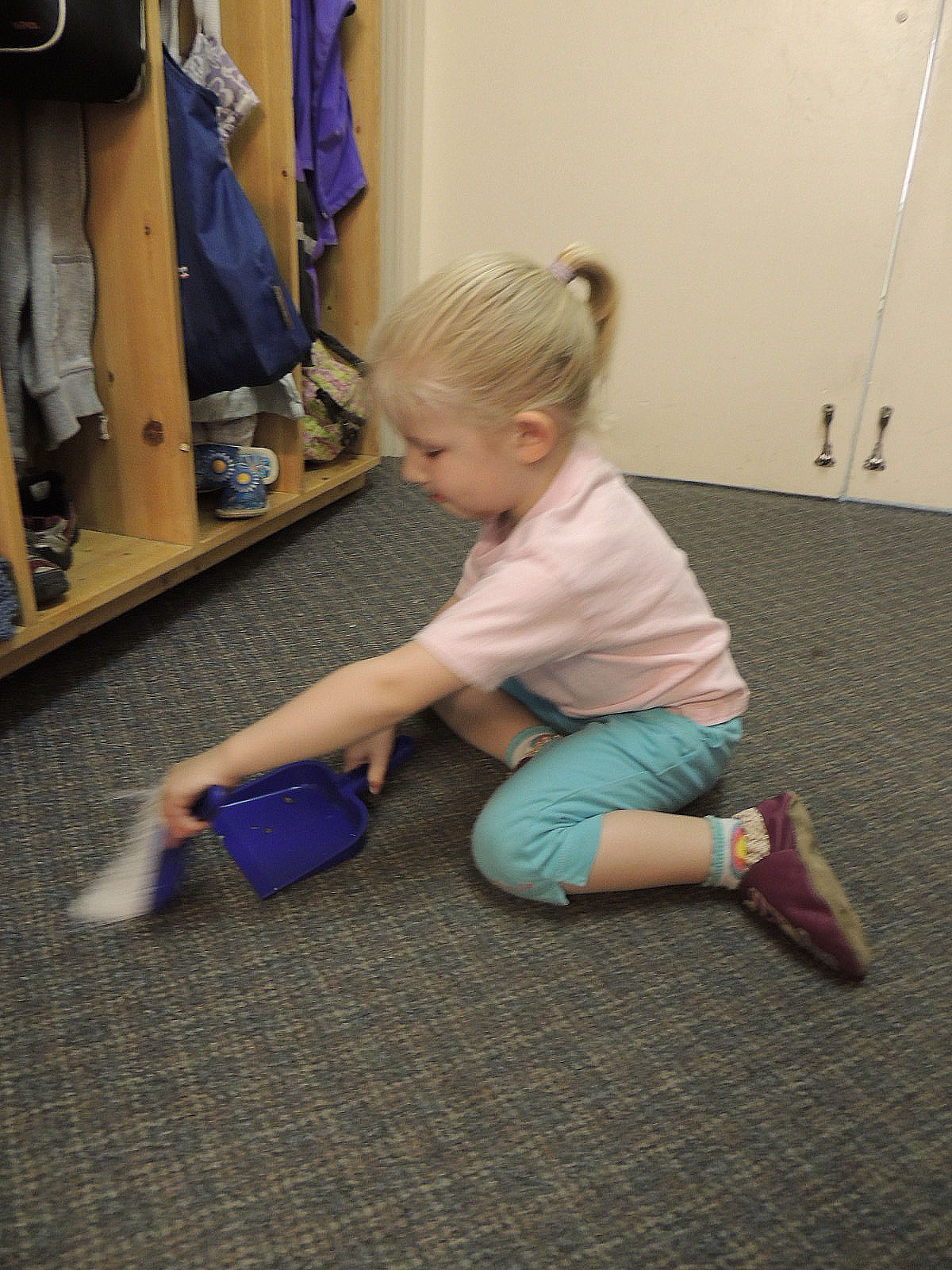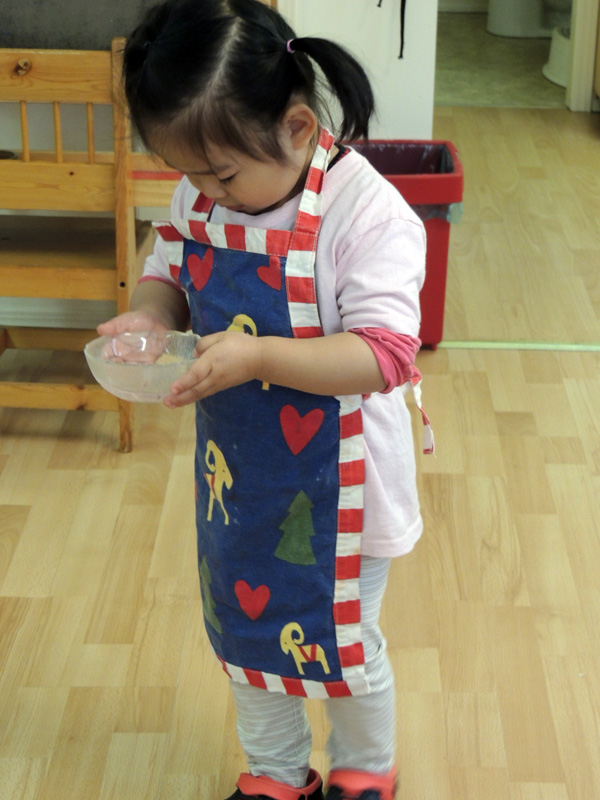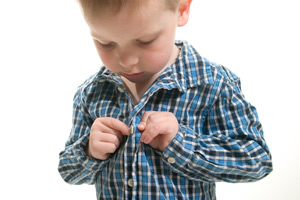 In the Montessori classroom, independence is an integral part of the day-to-day program. Each morning the cubby area hums with activity as the children get ready for school. It takes practice and persistence to get in and out of coats and shoes. Often a five-year-old, who is ready in a flash, will linger and chat and help a new three-year-old classmate tug at a zipper that won’t go up. In the rush to catch up to friends, the floor might be left with boots and bags strewn about, but it isn’t long before one of the four-year-olds notices and puts everything in order.
In the Montessori classroom, independence is an integral part of the day-to-day program. Each morning the cubby area hums with activity as the children get ready for school. It takes practice and persistence to get in and out of coats and shoes. Often a five-year-old, who is ready in a flash, will linger and chat and help a new three-year-old classmate tug at a zipper that won’t go up. In the rush to catch up to friends, the floor might be left with boots and bags strewn about, but it isn’t long before one of the four-year-olds notices and puts everything in order.
Theirs is a classroom that is designed to invite children to take ownership and interest in its use, care and maintenance. Child-sized tables, chairs, shelves and learning materials all promote and stimulate independence. Small hands feel at ease and able to manipulate tools that are made just the right size. It is fun to sweep with the small broom and dustpan – so much fun that sometimes spills happen just for the pure pleasure. Continue reading
 In the Montessori classroom children practice how to be self-sufficient, self-supporting and self-reliant.
In the Montessori classroom children practice how to be self-sufficient, self-supporting and self-reliant.

 It is sometimes difficult to allow your child to make the mistakes it takes to master a task at hand. All too often it is more work to clean up after your child has “helped” rather than just doing the task yourself. However, it is important to do your best to let your child try and complete any activity they are engaged in. Children have the will; it’s just the skill that’s needs improvement. By disrupting your child’s work you may inadvertently give them the signal that they are not good enough. Positive self esteem and independent thought are nurtured by positive experiences to actions in the child’s world.
It is sometimes difficult to allow your child to make the mistakes it takes to master a task at hand. All too often it is more work to clean up after your child has “helped” rather than just doing the task yourself. However, it is important to do your best to let your child try and complete any activity they are engaged in. Children have the will; it’s just the skill that’s needs improvement. By disrupting your child’s work you may inadvertently give them the signal that they are not good enough. Positive self esteem and independent thought are nurtured by positive experiences to actions in the child’s world.